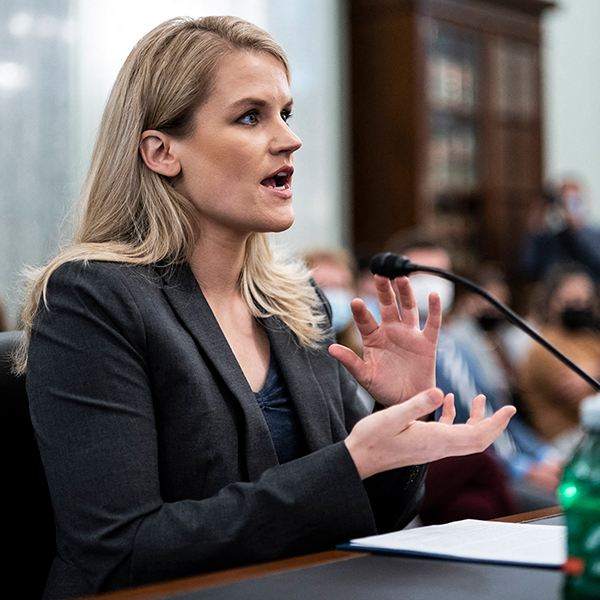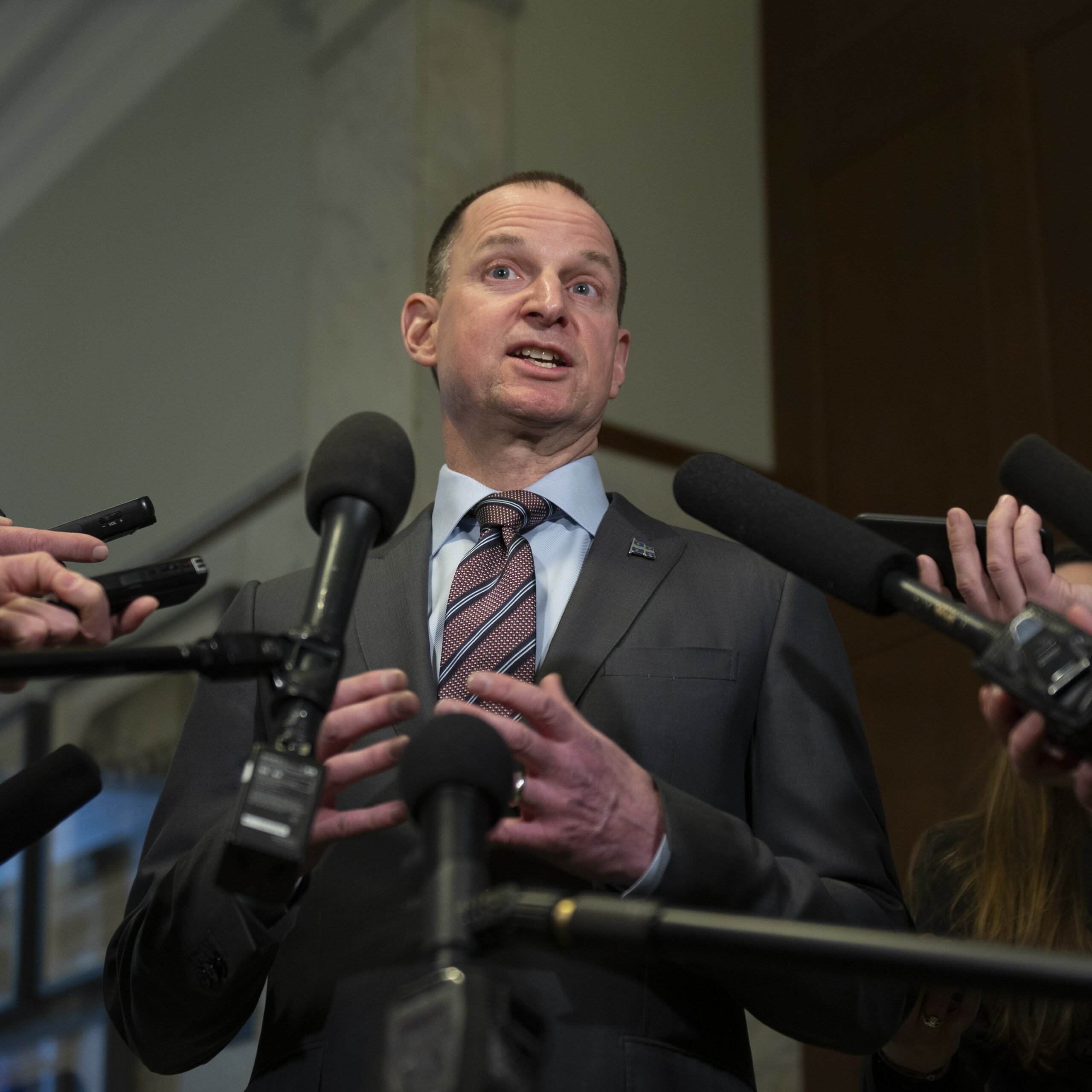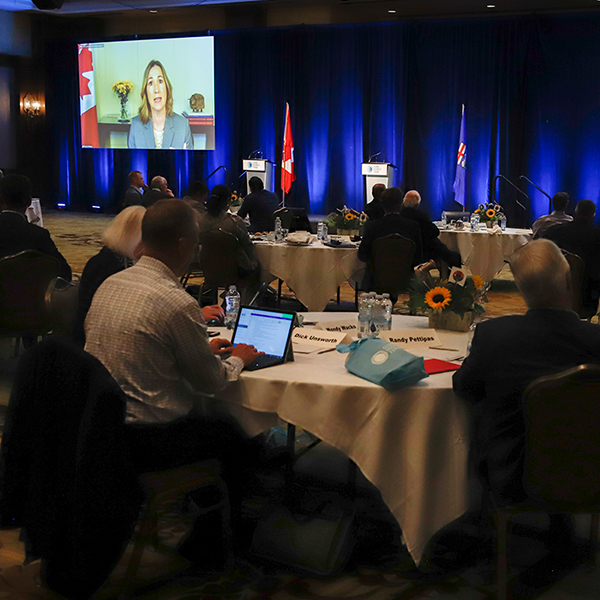Philippe J. Fournier, BSc’01, had just started his work on election forecasting when a news story about opinion polls in Quebec provided another nudge in that direction.
For a college professor steeped in science and numbers, the story was vexing.
Fournier recalls the journalist noting how the provincial Liberal Party had dropped one point from the previous month, while “completely ignoring” statistics, margin of error and the uncertainty in polls.
“It just drove me mad,” says Fournier, who figured maybe a scientist – he teaches physics and astronomy at a Montreal CEGEP – should explain science and statistics to journalists. “They’re great at their jobs, but they don’t do much math.”
In 2017, Fournier created the Qc125 and 338Canada websites where he shares his electoral projections, which use opinion polls, electoral history and demographic data.
With seven general elections under his belt, including the 2018 Quebec election and the 2019 federal vote, Fournier’s success rate is an impressive 90 per cent. His model has projected 871 electoral districts and correctly picked the winner in 783 ridings.
His success rate is even more impressive at a time when many established polling firms have been seeing election results that were markedly different from what their polls had predicted.
An in-demand political analyst, Fournier has appeared on Radio-Canada’s election night coverage and is a political contributor with L’actualité and Maclean’s magazines. To his surprise and delight, the latter named him to its 2021 Maclean’s Power List of “50 Canadians who are breaking ground, leading the debate and shaping how we think and live.”
Policy isn’t his speciality, says Fournier, the number cruncher. “I know the numbers…I’m careful to stay in my lane.”
It was at McGill where Fournier says he learned computer programming and how to become a scientist.
A physics major with an aptitude for math, Fournier worked as a croupier dealing poker and blackjack at the Montreal Casino to pay for his tuition and apartment.
“In my spare time I would come home and try to write a program that could maximize winnings in those games. Of course, it was before the era of online gambling,” he says. “Numbers and programming have been a passion for a long time.”
Fournier returned to his hometown Quebec City for a master’s degree in astrophysics at Université Laval. He studied the future black holes of the galaxy, massive blue and violet stars called Wolf-Rayet, and became a CEGEP professor. He loves his profession and has no plans to give it up, although he now teaches part time so he can do more political writing.
Fournier waded into election forecasting during the 2016 U.S. presidential election, following the campaign and the polls. “I had my little program on an Excel spreadsheet that was very rudimentary, but it gave me interesting numbers.”
Fournier says he was “completely floored” by coverage predicting certain victory for Hillary Clinton. While the numbers clearly showed she was the favourite, it was still no sure thing. “Trump was a mild normal polling error away from winning,” he says.
Fournier likens his election simulator to a video game that he programmed: he enters data and makes simulations of how people will vote and examines past electoral results. The heavy lifting happens before a campaign; once it starts, it’s all about tracking the polls.
“My model takes into account the fact that polls could be wrong just by a point or two.” So, he explores the possibility that they’re wrong about the various parties in the race.
“I test several scenarios to see what happens, it gives you a better idea of the bell curve of where things stand.” He weights polls in the computer model, notably according to their sample size and when they were conducted, but also based on his site’s ratings of pollsters.
He runs daily simulations – usually 50,000 a day for provincial elections and 250,000 for federal votes – typically launching the computer program overnight and getting the numbers the next morning.
“The [last] Alberta election was among my best ones, I had 82 correct calls out of 87. But to this day I have people in the ridings that I missed saying, ‘You suck, you don’t know anything, you’re terrible.’ And I had over 90 per cent of correct calls, but I missed their riding.”
Which brings us to what Fournier considers the hardest part of the work: “the constant criticism and abuse that I get online.” On his website where he lays down the etiquette law for his 338Canada Facebook page, Fournier notes he’s been accused of being a ‘Liberal shill’ and ‘owned by Tories.’
In fact, Fournier strives to remain independent and impartial. He doesn’t work for any political party – but they are increasingly interested in his work. He talks to all of them and usually answers their questions. “I know they rely on my numbers. And I want to be fair to all.” When the Coalition Avenir Québec asked him a few questions during the 2018 Quebec election about things not on his website, Fournier agreed to answer, but included the responses on his blog for all to see.
In last November’s vote south of the border, Fournier called 48 out of 50 states correctly. “I did really well in the presidential election.” He missed North Carolina – “It went Republican by one [percentage point] and my call was Democratic by one” – and he missed the notoriously unpredictable Sunshine State, of which he says: “Florida is always Florida.”
A self-described workaholic, Fournier says he enjoys the way his election forecasting, is “taking me to places I did not expect,” pointing to his media work.
“I guess the things that keep surprising me are the most fun. But I know it could end at any time and so I want to be careful and try to stay humble. If I blew an election at some point, it’s going to be really hard to come back from.”


